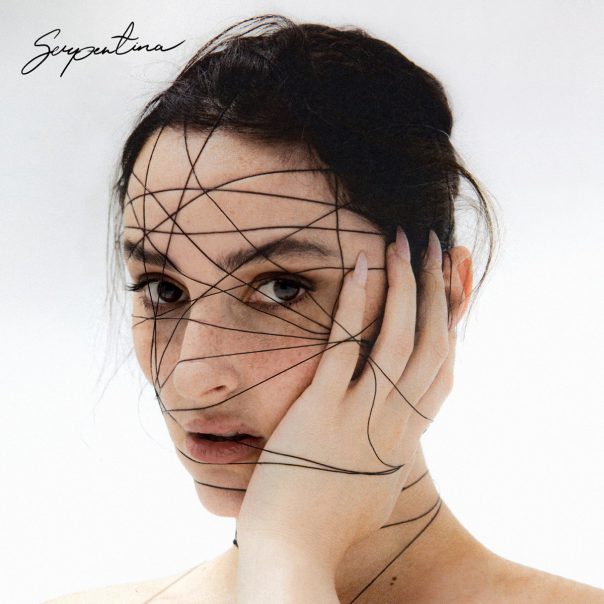REVIEW: Banks’ ‘Serpentina’ pushes avant-pop to new heights

Banks, ‘Serpentina,’
Some 400 years ago, English theologian Thomas Fuller wrote “it’s always darkest before the dawn.” Despite its relative simplicity, it remains true, giving us all the more reason to apply the phrase to art and our lives. It’s the perfect description of Jillian Rose Banks’ journey to make Serpentina.
Serpentina
Banks
AWAL, April 8
9/10
Before the world was forced to reckon with the collective trauma brought on by the pandemic, the artist, who performs as Banks, was battling her own onslaught of physical pain. Between 2019’s III and its tour, she fractured her spine and was diagnosed with Hashimoto’s disease, an autoimmune disorder.
In order to perform, she got steroid shots nightly and by the end of the tour she was suffering from bouts of depression and anxiety. Then the pandemic arrived.
Now, cue the first rays of sunlight.
Production on Serpentina began in those first months of the pandemic as Banks began teaching herself how to use new production software. She likens mastering it to the feeling she had when she first started making music as a teen, becoming almost manic. She’s never produced herself as much as she did for Serpentina, and the result is outstanding. The entire album builds on the styles sewn throughout her previous three releases, with a range of vocal work and distortion, heavy layering and intense production.
On dramatic opening song “Misunderstood,” these elements converge. It’s less than two minutes long, but she works in moaning vocals with the slowly swirling music. As the beats get choppier and congested, her voice begins to peak over lyrics like, “If I had just one love for every time somebody didn’t listen, I wouldn’t need these vocals man/ But I still got my mic in hand.”
“Holding Back,” released in February, is the best example of where making the album took Jillian Rose Banks. Opening with a high-pitched and squealing “oh-woah,” it quickly melts into the screeching chorus before her voice comes back down to a middle range for the verses and hook. The sharp, heavy production is instantly infectious, and each time listening feels like a journey in itself.
The skipping beat on “Anything 4 U” works alongside the distortion of her vocals, partway through rounding out into a deeper beat. “I say you shouldn’t do/ Something I wouldn’t do/ The problem is I’d do just anything for you,” she sings during the chorus. “Deadend” begins over a piano but begins working in heavier production about a minute in. The classic Banks elements combine, each verse starting slow and building with distortions to her voice and shaking beats.
Not all of Serpentina is resounding and loud. There’s “Birds By The Sea,” where she reminisces on her time with a lover who’s now having a baby with another woman. She’s lonely and introspective. “You never sang for me,” she moans as the piano trills gently. Banks has always been one to layer her tracks, something she does full-fledged on songs like “Burn.” Strings and beats, vocalizing and lyrics all combine increasingly throughout the song, never really reaching a crescendo. Instead, they each slowly melt away during the final 30 seconds.
Banks wrote “I Still Love You” when she was just 20. She uses the range of her voice and the distant piano to emphasize the time that’s passed between her and the lover she’s remembering. Banks considers everything she no longer knows about him: where he goes on Friday nights, his current favorite song, or if she still smokes weed (though he probably does). “Get to know me once more baby/ With all your issues I still miss you,” she sings, her voice retaining the ache of heartbreak, despite the song being from over a decade ago.
Keep Banks and Serpentina on your radar for when 2022’s best-of lists start arriving, it might be the best avant-garde pop record in recent memory.
Follow Domenic Strazzabosco at Twitter.com/domenicstrazz and Instagram.com/domenicstrazz.
